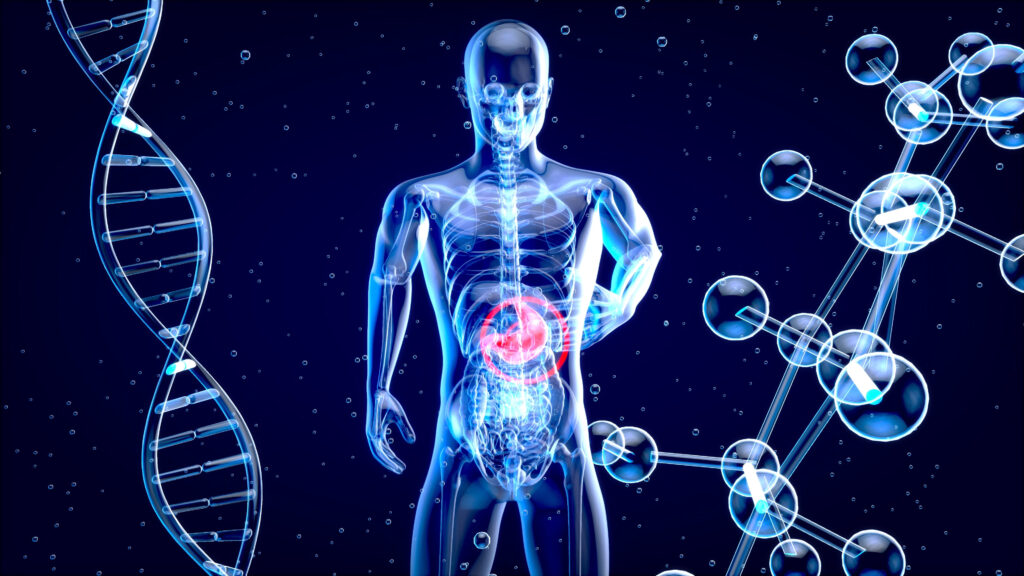"The Role of Digestive Enzymes in Gut Health": Unpacking the importance of enzymes in breaking down food.
When it comes to gut health, there’s more to the story than just a balanced diet. In fact, the key to optimal digestion and overall well-being lies in the often-overlooked realm of digestive enzymes. These powerful catalysts play a crucial role in breaking down the foods we consume, facilitating the absorption of essential nutrients, and maintaining a harmonious gut environment. In this article, we’ll delve into the fascinating world of digestive enzymes, exploring their significance in promoting a healthy gut and overall well-being.
- Understanding Digestive Enzymes:
Digestive enzymes are biological molecules that act as catalysts, accelerating the breakdown of large food molecules into smaller, more easily absorbed components. Our bodies naturally produce these enzymes, which are responsible for breaking down carbohydrates, proteins, and fats into simpler forms. These enzymes are typically secreted by various organs along the digestive tract, including the mouth, stomach, pancreas, and small intestine.
- Types of Digestive Enzymes:
There are several types of digestive enzymes, each specializing in the digestion of different nutrients. The main categories include:
a. Amylase: Breaks down carbohydrates (starches) into simpler sugars like glucose. b. Protease: Aids in the digestion of proteins into amino acids. c. Lipase: Breaks down fats (lipids) into fatty acids and glycerol.
- Enzymes in the Mouth:
Digestion begins in the mouth, where amylase enzymes are secreted by salivary glands. These enzymes kickstart the breakdown of carbohydrates by breaking them down into smaller sugars. Chewing your food thoroughly helps mix it with saliva and initiate this process, which sets the stage for efficient digestion.
- Enzymes in the Stomach:
Once the food reaches the stomach, it encounters gastric juice, which contains pepsin, a protease enzyme. Pepsin plays a pivotal role in breaking down proteins into their constituent amino acids. Additionally, the stomach releases gastric lipase, which begins the digestion of fats.
- Enzymes in the Small Intestine:
The small intestine is where most of the digestion and nutrient absorption occur. Here, the pancreas releases a range of digestive enzymes, including amylase, protease, and lipase, into the duodenum (the first section of the small intestine). These enzymes work together to break down carbohydrates, proteins, and fats into their simplest forms, allowing for efficient absorption into the bloodstream.
- The Importance of Proper Digestion:
Efficient digestion is essential for gut health and overall well-being. When food isn’t adequately broken down, it can lead to various digestive issues such as bloating, gas, and discomfort. Moreover, poor digestion can limit the absorption of vital nutrients, leading to nutritional deficiencies and a weakened immune system.
- Factors Affecting Digestive Enzyme Production:
Several factors can influence the production of digestive enzymes in the body, including age, genetics, diet, and lifestyle. As we age, enzyme production may decrease, making it even more important to support digestion through diet and supplementation if necessary.
- Enzyme-Rich Foods and Supplements:
To support your digestive health, consider incorporating enzyme-rich foods into your diet. Fermented foods like yogurt, kefir, and sauerkraut naturally contain beneficial enzymes. Additionally, digestive enzyme supplements are available for those who may need extra support, especially if dealing with conditions like pancreatic insufficiency.
Conclusion:
In the world of gut health, digestive enzymes are the unsung heroes, silently working behind the scenes to ensure your body efficiently breaks down and absorbs the nutrients it needs. Understanding the role of these enzymes and taking steps to support their function can make a significant difference in your overall well-being. So, remember to chew your food thoroughly, enjoy enzyme-rich foods, and, when necessary, consider supplements to keep your gut happy and healthy. Your digestive enzymes are there to support you, so why not return the favor?


